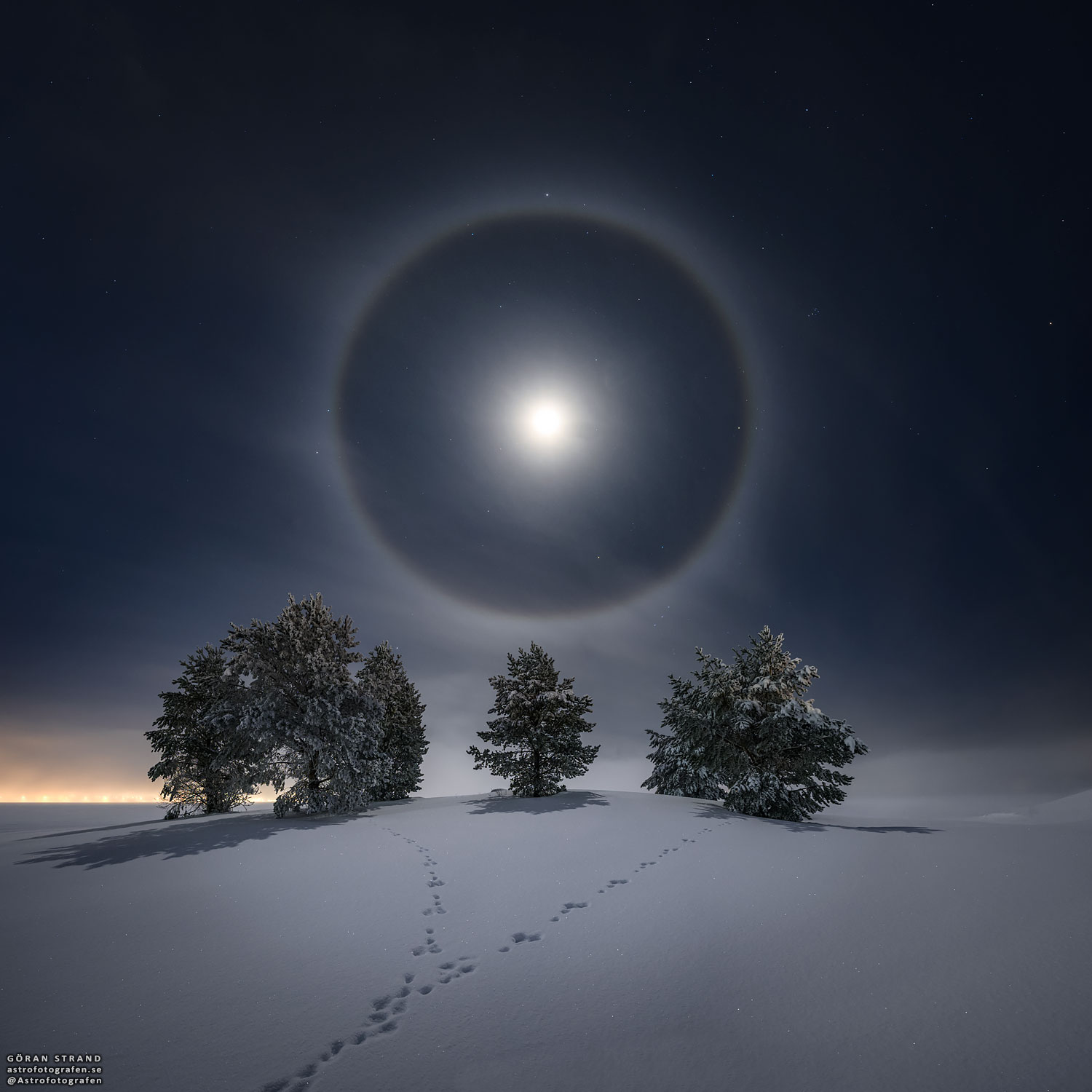
APOD 2021 February 1 Lunar Halo over Snowy Trees
Rare lunar halo - an odd-radius halo - over India. A common halo around the sun or moon has a radius of 22 degrees. It's called a 22-degree halo. But here's a rare lunar halo: an odd-radius.
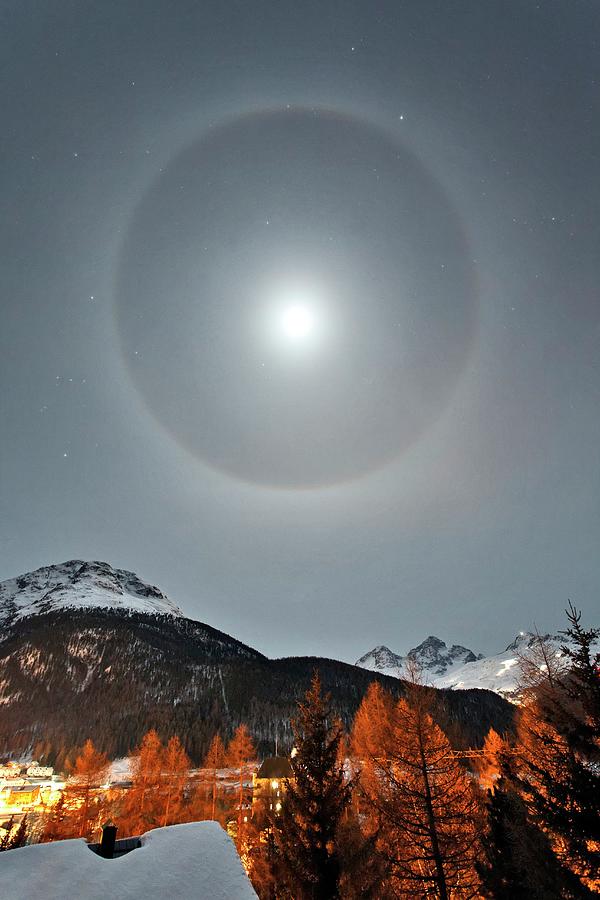
Lunar Halo Photograph by Dr Juerg Alean/science Photo Library
Honkai Impact 3rd 2016 Browse game Gaming Browse all gaming Performed by: 茶理理, TetraCalyx, HanserPain once shadowed the pathBut hope will be rekindledTo burn away the darknessAnd carry the.
Spectacular Moon Halo r/atoptics
The lunar or moon halo is an optical illusion that gives the moon a big, dazzling ring around it. The refraction of moonlight by ice crystals in the high atmosphere creates this remarkable and.
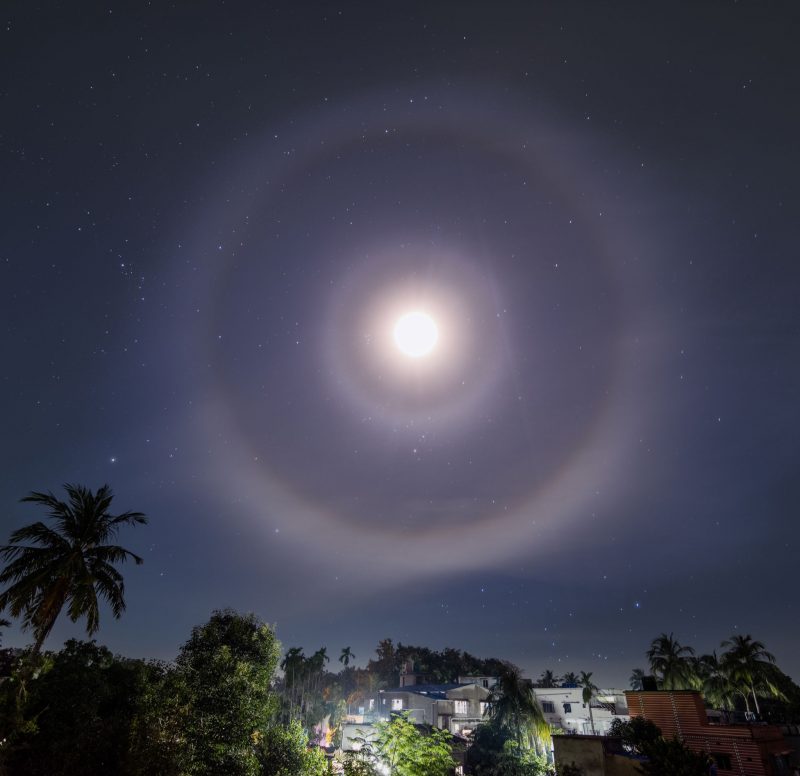
Why Does It Look Like There Is a Blue Ring Around the Moon Rivera
November 23, 2021 View larger. | Eliot Herman took this image of a rare moon halo and associated phenomena during the partial lunar eclipse of November 19, 2021. In this photo you can see a.
Lunar halo with a lot going on. Airplane. Moondog? Ice crystals
A "lunar halo" has been spotted in the night skies. The ring around the Moon was seen over the skies on Saturday evening in Staffordshire, the West Midlands, Surrey, Berkshire, Dorset,.
In response to the Moon Halo post, this was the one I witnessed over
A moon halo is said to be created when light is refracted, reflected and dispersed through ice crystals suspended in clouds high up in the night sky. The shape of the crystals focuses light into a.
Full Moon Halo Connecticut r/atoptics
Referred to as a "moon halo," "moon ring" or "22° halo," the glowing ring around the moon is actually an optical phenomena. According to space.com, "the moon's halo or lunar halo is an optical.

Have you seen a perfect halo around the moon recently? Here's why.
That ring or lunar halo is caused by the refraction of moonlight by ice crystals.

Incredible moon halos and corona shine over Manitoba, Canada The
A moon halo, sometimes referred to as moon ring, is a ring formed around the moon with the radius of approximately 22°. It is formed when the moonlight is refracted in ice crystals suspended in the atmosphere.
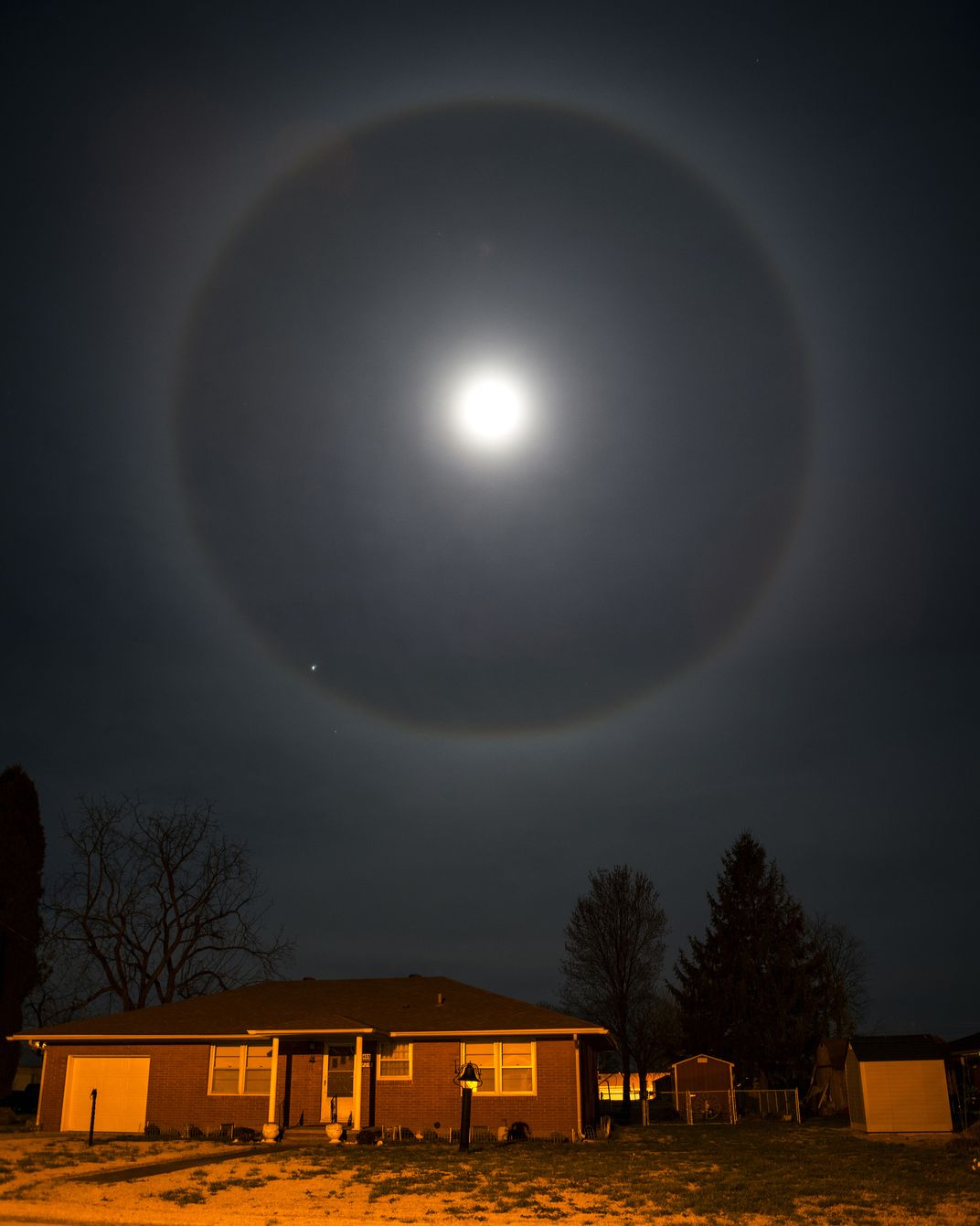
Lunar Halo Smithsonian Photo Contest Smithsonian Magazine
published 6 January 2024 The moon's halo is always 22 degrees wide in the night sky when it appears. So what causes it? Comments (0) Rings can appear around the moon because of ice crystals.

Halo lunar desde Arizona, Estados Unidos El Universo Hoy
A 22° halo is an atmospheric optical phenomenon that consists of a halo with an apparent radius of approximately 22° around the Sun or Moon. When visible around the Moon, it is also known as a moon ring, storm ring, or winter halo. It forms as sunlight or moonlight is refracted by millions of hexagonal ice crystals suspended in the atmosphere. [1]
🔥 Saw a Lunar Halo last week after some thunderstorms 🔥
The lunar halo is visible on the same night as a full moon. Technically, the moon is considered to be fully illuminated at 4:29 a.m. ET on November 30. But to most people it will appear full.
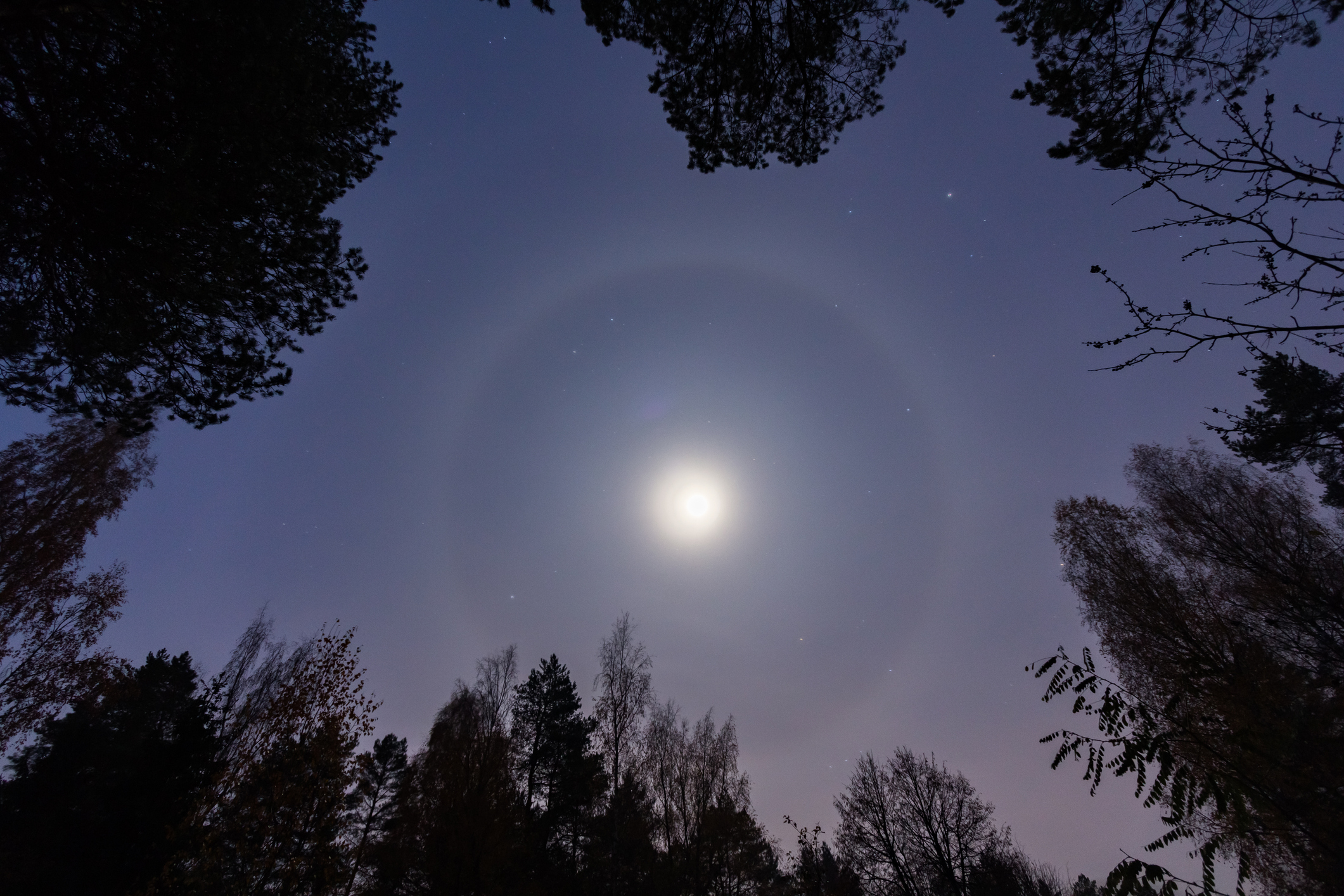
What Causes a Ring Around the Moon? Halo Spotted in Skies Around the U
The lunar halo appeared over the beach in Cullercoats, North Tyneside. A rare "moon halo" was spotted in the night sky across north-east England and North Yorkshire on Boxing Day.
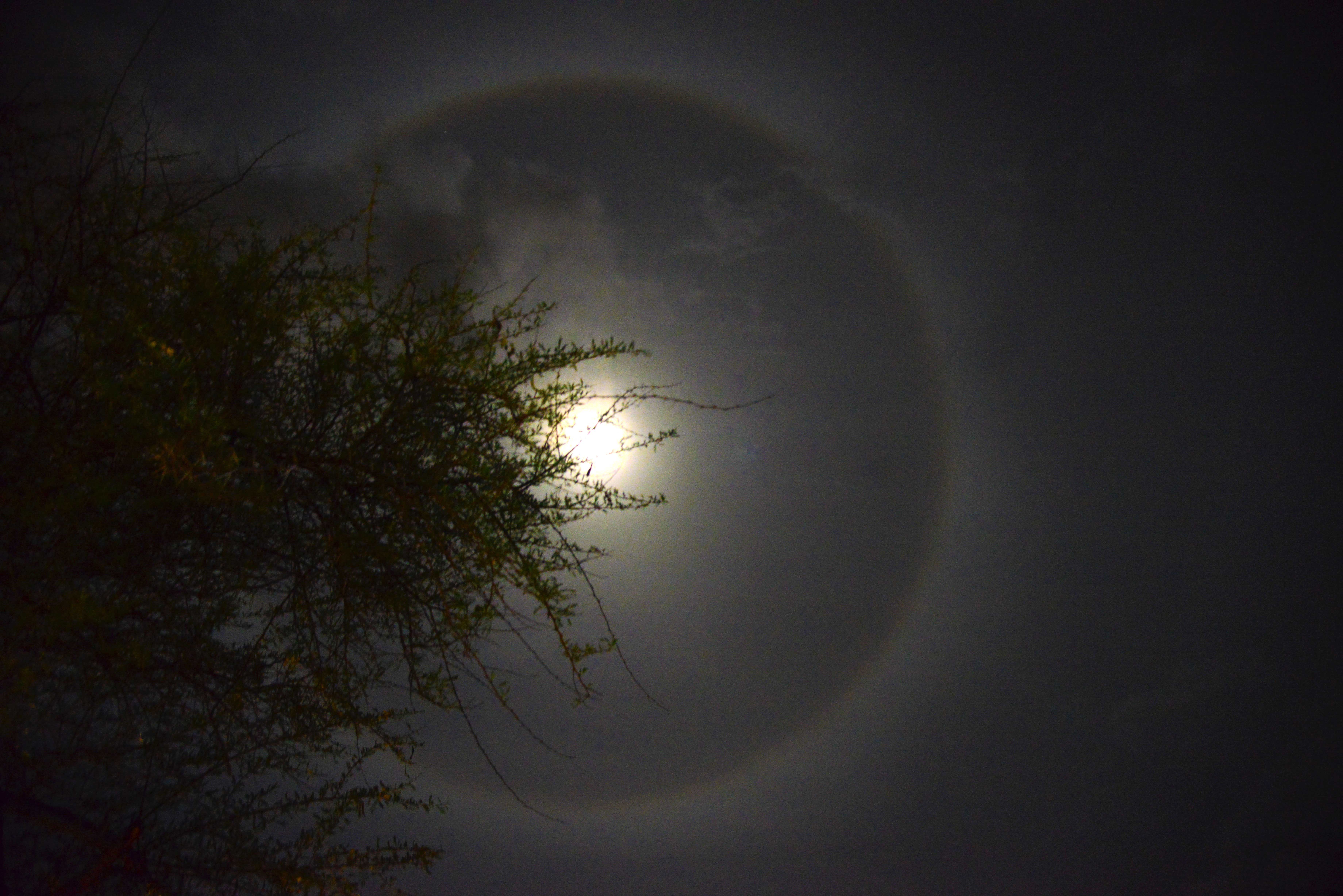
Moon Halo Effect San Bhaskaran
What Is A Lunar Halo? A 22 Degree Halo, also known as a Lunar Halo, is a hazy ring that occurs around the moon at a radius of approximately 22 degrees. It results from the moon's light being refracted by ice crystals in Cirrus clouds in the upper troposphere at an altitude of approximately 6000 meters or 20 000 feet.
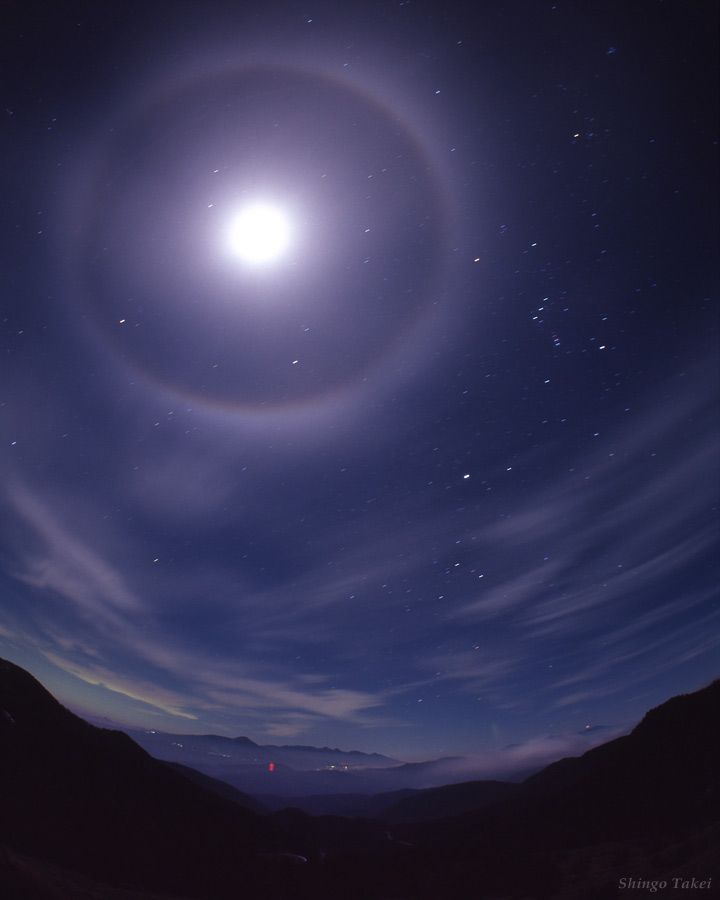
Lunar Halo Lights Up Orion in Skywatcher Photo Space
7 First Alert Meteorologist Kevin Jeanes said it's called a 22° halo and it happens because we have high cirrus clouds that are made up of ice crystals. These clouds are actually on the outer.
/an-ice-crystal-halo-around-the-first-quarter-moon--556919283-5c3b48e14cedfd000155607b.jpg)
Lunar Halo Moonbows Rings Around the Moon
Similarly, Gateway's unique near-rectilinear halo orbit, or NRHO, was specifically chosen to help ensure the success of future Artemis missions. There is no shortage of options for how a spacecraft could orbit the Moon, but two in particular - low lunar orbit and distant retrograde orbit - are helpful for understanding why NRHO is the.